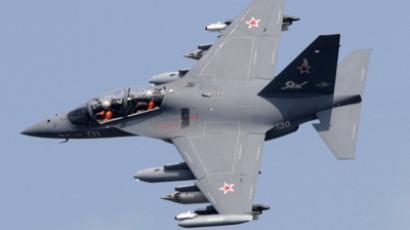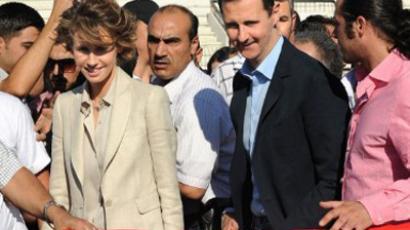Who is Syrian opposition? West has no idea
The West should drop the Libyan scenario when dealing with Syria. The country’s opposition is neither homogenous, nor ideologically transparent, and the West cannot be completely sure who it is supporting, political editor Mehdi Hasan told RT.
It is wrong to compare the Syrian opposition to their Libyan counterparts, believes Hasan, who is senior political editor with New Statesman magazine. The Syrian opposition is far less homogenous.“There is this division between the external opposition figures, like the leader of the Syrian National Council who is based in Paris, and those who are on the streets, who have said again and again to Western reporters, to human rights groups – ‘We don’t want military intervention’, ‘We are opposed to both the Syrian president, the Assad regime, and we are opposed to Western intervention. We saw what happened in Iraq’,” the journalist says.Syrians were first-hand witnesses to the consequences of America’s intervention in Iraq, Mehdi Hasan points out. That is why they are immune to the temptation to accept “external assistance.” “The Syrians saw up close and personal the effects of Western intervention in Iraq because hundreds of thousands of Iraqi refugees fled into Syria. They know the consequences of ill-timed, ill-thought-out, heavy-handed Western intervention,” he said.Mehdi Hasan says the opposition Free Syrian Army, consisting of defectors from the Syrian military, may be deliberately exaggerating its might to justify a Western intervention. “There is a huge debate about the FSA and how many defections are going on because they claim to be getting dozens and dozens of defectors every day, every week, from Assad’s Syrian armed forces. And yet others, independent observers, not just the Assad regime and its apologists, are saying that it is a trickle and they are exaggerating their own strength in order to, again, justify Western intervention.” Organizations like the FSA have cropped up in many other places where the West has intervened, Hasan tells RT.“If you look at the history of Western interventions, so-called humanitarian interventions, you always see there is an equivalent of the FSA on the ground, whether in Libya, or if you go back to Kosovo, the KLA, which also said ‘Give us the guns, give us the air support and we will do the fighting,’” he said. According to the journalist, the West should be wary of supporting groups whose ideologies could turn out to be far from humane. “You support people who, perhaps, are not the greatest defenders or advocates of human rights themselves,” he said. “In Libya, the opposition groups and the National Transitional Council were accused by Human Rights Watch during the conflict of carrying out all sorts of killings and abuses of prisoners, which still have not been resolved and properly accounted for. Do we want then to lurch into the Syrian conflict, where again we are ignorant of what is going on on the ground? We are not experts on who this people are and what these groups stand for.”














